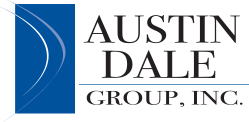25 Oct Building Value: Direct Access to Customers
Is your company good at sales or distribution? Have you built a team that is very efficient and effective at getting your products in the hands of customers? Does your team have specialized knowledge or access to customers? If so, then your team could be more valuable to a prospective acquirer than the products you sell.
An entrepreneur needs to make decisions about what aspects of the business are part of the value chain that he/she is creating. This is critical for both the value that is created for customers and the value that is created for a prospective acquirer.
Many companies outsource some or all their sales and distribution functions. Depending upon the business this may make sense, particularly if they are commodity functions with little differentiation. On the other hand, if your market requires specialized, knowledgeable sales staff or distribution channels, particularly those with a ‘high-touch’ customer model, then it may be worth investing in an internal team.
What Acquirers Want
Simply put, an acquirer wants an edge, something that will give them a leg up on their competition.
If an acquirer needs to reach new customers and their business model requires direct contact with those customers, then acquiring a ready-made sales and distribution channel could be an attractive alternative. This type of deal typically happens when the acquirer is planning to move into a new market, a new region, or a new country.
The sales team will be valuable when direct sales are required and language, culture, and ready access to decision makers is important. The distribution capability is valuable when physical products are involved, and warehousing and logistics are important factors in customer access.
The applicability of this option varies by industry and depends upon compatibility between the products sold and distributed by the current company and the prospective acquirer. Differences between the culture and compensation models are also potential pitfalls that must be carefully analyzed and addressed, so this is not an easy proposition.
Maximizing the Value of Your Sales and Distribution Team
The entrepreneur should objectively review their sales and distribution capability and answer some critical questions:
- Is your capability strong enough and unique enough to have an intrinsic value to an acquirer?
- Is your market and customer base attractive to a potential acquirer?
- Could you boost your team’s desirability and value with additional investment, such as new technology and additional training for your staff?
- Would that investment be justified in terms of boosting the near-term operations and value of your existing business?
The first two questions are probably difficult for you to answer and likely can only be accurately determined once the company is put up for sale. However, you should be able to answer the latter two questions.
If you can justify investments in your sales and distribution channels by the improvements in your current business, then it may be worthwhile to do. Even with a marginal near term return on investment it could pay dividends when you sell the company.
Be aware, it is difficult to assess the value of a sales and distribution capability as a standalone asset, and finding a buyer is a tricky proposition. Nevertheless, it is an aspect of value that all entrepreneurs should consider.
Also note that if the acquirer does not see an intrinsic value in your sales and distribution function and views it as duplicative or inefficient, then it could have a negative impact on the value of your company.
Bottom Line for the Entrepreneur
Your sales and distribution capabilities are part of the value of your business, so you should:
- Make careful, objective decisions about whether to build the functions in house or to outsource all or part of the functions if they can be viewed as a commodity
- Make sure that any investments can be justified by the value they add to existing operations
- Focus investments on differentiable capabilities in your sales and distribution functions
- Be conservative when considering how an acquirer may value your sales and distribution capability
In this series of articles, the Austin Dale Group will distill some of the lessons learned from our many years as M&A and Strategic Growth Advisors to emerging and mid-market technology companies. We will review what acquirers want and how these key factors can have a dramatic impact on the value of a company to shareholders and acquirers.






